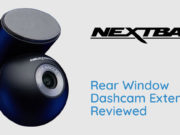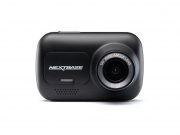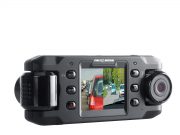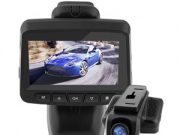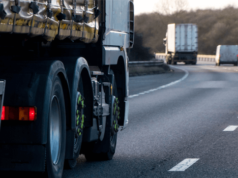Ah, the word “compliance”. A word that sends shudders down the spines of most business owners. Add the acronym “GDPR” into the mix and that’s when the cold sweats start.
Whether you’re an owner driver or run an entire fleet of commercial vehicles, the likelihood is you’ll be operating dashboard cameras. It makes perfect sense for you to have them installed. Dash cams are proven to combat fraudulent claims and reduce at fault accident rates. That can mean great news for your business in the form of lower insurance premiums.
You must be careful though. We’ve heard some horror stories about big fines for dash cam data breaches. That’s why it’s imperative you know how your dash cams fit in with your business’s overall GDPR compliance.
Firstly, What Is GDPR?
Okay, we’re probably teaching you to suck eggs here, however it’s always worth having a quick refresher on important legislation such as GDPR.
GDPR stands for “General Data Protection Regulation”. This was an act put into place by the European Union (EU) to protect the data of its citizens. Before you even mention the “B” word, GDPR is still something you very much need to pay attention to.
Following Brexit, we now have UK GDPR which essentially retains GDPR in UK domestic law, however the UK has independence to monitor and review this framework. If you trade with businesses in the EU, you’ll still need to comply with EU GDPR.
We don’t want to scare you too much here, however serious breaches of EU GDPR mean companies can face fines of up to €20 million or up to 4% of their global turnover. You’ll agree, severe numbers to say the least.
So, How Does GDPR Impact Commercial Dash Cams?
Dash cams collect and store personal information. This includes visually recording someone’s actions and recording audio of what they’re saying, inside and outside of the vehicle. That’s where the need for GDPR compliance comes in.
Unless you have a legal basis to lawfully process personal data, you’ll need to gain explicit consent to record people via your commercial dash cam. This consent needs to be freely given, specific, informed, and unambiguous, to make sure you stay on the right side of the law.
There are strict rules around the collection, storage and use of personal information. Somebody in your business needs to be familiar with these rules and also what needs to be done in the event of any data breaches.
Our Top 6 Tips To Ensure Commercial Dash Cam GDPR Compliance…
Here are the 6 key things you need to consider when you’re capturing images and audio via a commercial dashboard camera:
1. Ensure Correct Use Of Your Dash Cams
This one might seem fairly obvious but make sure your dash cams are set with a privacy mode and only used when necessary. You should also think carefully about whether you really need to record audio or not. This can help avoid some further GDPR complications.
2. Create A Dashcam GDPR Policy
Make sure you have a robust dash cam policy included in your business’s overall GDPR policy. Your GDPR policy will detail how you use, store and process personal information. If you’re recording people via your commercial vehicle dashboard cameras, there needs to be a dedicated section in your policy about this.
3. Correctly Store Dashcam Footage
Your dash cam GDPR policy must include information about how long you’ll be storing the footage. Our advice is to never store footage or audio for longer than necessary. You don’t want to face fines because of personal data that should have already been deleted. It would also be a good idea to undertake a Data Protection Impact Assessment (DPIA). This assessment is designed to help you better understand any data privacy issues that may arise from collecting and storing dash cam footage.
4. Securely Maintain Personal Data
Use enhanced security to ensure personal data isn’t compromised. This will include having strong security measures in place regarding access. For example, restrict access to authorised personnel only, making sure they’re well trained in GDPR compliance. Image and audio sequences must also never be altered in any way; this is crucial if the footage is ever required as evidence in legal proceedings.
5. Make Staff Aware Of Your Dashcam GDPR Policy
Your vehicle operators need to be fully aware of your dash cam GDPR policy. It’ll be up to them to enforce it on your behalf when they’re out and about on the road. They must to be clear on it. If they have any questions it should be obvious to them which members of your compliance team or senior management are responsible for GDPR.
6. Let The Public Know They Are Being Filmed
Make it clear to the general public that your commercial vehicles are fitted with dashboard cameras. A simple but effective way of aiding dash cam GDPR compliance is having signage present on your vehicles. Simply add some decals stating that dashboard cameras are in operation, recording video and audio, and you’ll be a step closer to GDPR compliance.
Commercial Dashcam GDPR – A Summary
Commercial dash cams have proven very useful in investigations and can be used as evidence of accidents and other incidents. This can help those involved settle cases easily without having to go through expensive legal proceedings. If you’d like to learn more about using dashboard camera footage in court, check out our article here.
This, coupled with lower insurance premiums, makes using dash cams a natural choice for professional drivers or managers operating a fleet of commercial vehicles.
If you’re using dashcams in a professional capacity, you need to make sure you’re GDPR compliant. This will help you avoid any nasty surprises. And by surprises we mean fines!
It’s better to be safe than sorry and if you follow the steps detailed here, you should be well on your way to using your dash cams in a GDPR compliant manner.



